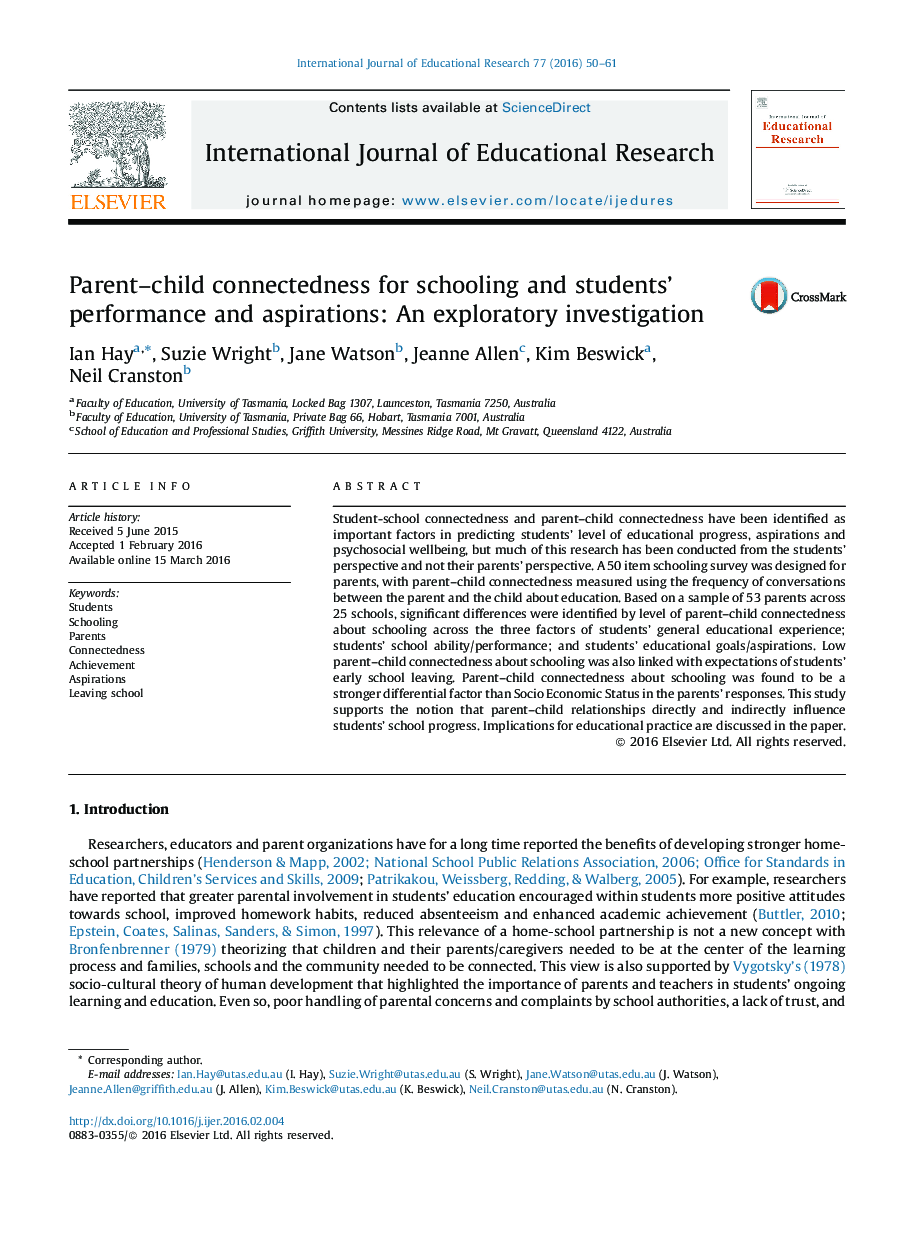| Article ID | Journal | Published Year | Pages | File Type |
|---|---|---|---|---|
| 356868 | International Journal of Educational Research | 2016 | 12 Pages |
•Parent–child connectedness on schooling predicted students educational progress.•Findings based on parent survey of their child’s schooling and progress.•Parent connectedness measured by frequency of parent/child talk about education.•Low parent–child connectedness on schooling linked to child’s early school exiting.
Student-school connectedness and parent–child connectedness have been identified as important factors in predicting students’ level of educational progress, aspirations and psychosocial wellbeing, but much of this research has been conducted from the students’ perspective and not their parents’ perspective. A 50 item schooling survey was designed for parents, with parent–child connectedness measured using the frequency of conversations between the parent and the child about education. Based on a sample of 53 parents across 25 schools, significant differences were identified by level of parent–child connectedness about schooling across the three factors of students’ general educational experience; students’ school ability/performance; and students’ educational goals/aspirations. Low parent–child connectedness about schooling was also linked with expectations of students’ early school leaving. Parent–child connectedness about schooling was found to be a stronger differential factor than Socio Economic Status in the parents’ responses. This study supports the notion that parent–child relationships directly and indirectly influence students’ school progress. Implications for educational practice are discussed in the paper.
